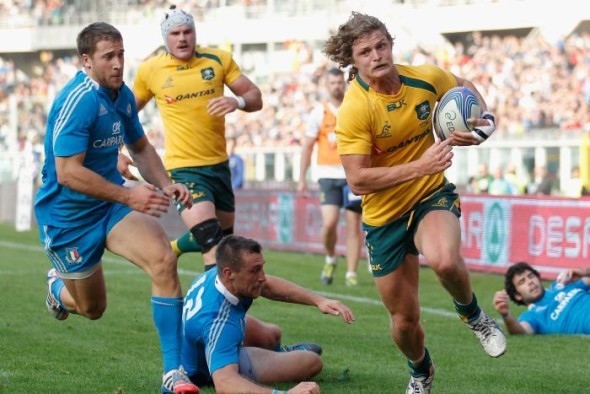 Renowned for being tough and resilient, many can be forgiven for thinking that rugby players do not need a grasp of sports psychology in order to succeed. However, by implementing sports psychology tactics, rugby players can overcome setbacks such as injuries and match-day defeats.
Renowned for being tough and resilient, many can be forgiven for thinking that rugby players do not need a grasp of sports psychology in order to succeed. However, by implementing sports psychology tactics, rugby players can overcome setbacks such as injuries and match-day defeats.
Training Well
Unfortunately, training the mind is often neglected by many athletes. However, when rugby players train their mind, their bodies will follow. If they feel that they are weaker than their opponents, they will not train as well. This is because they will not see the value in training if they feel that they are going to lose anyway.
Psychologists usually encourage athletes to look backwards, rather than forwards. If the player looks back over their past career, they will see that they have developed significantly as an athlete, rather than focusing on daunting tasks such as training sessions and the big matches that may be ahead of them. This allows players to think more positively and logically about their abilities.
Match-Day Inspiration
Match-days can be very daunting, especially for young and inexperienced players. It can feel as though there is a huge amount of pressure on rugby players. If a player walks out onto a pitch burdened with feelings of anxiety and worry, they will not perform at their best.
However, if an athlete believes that they are the best at what they do, they will be at the top of their game and they will be mentally prepared to defeat their opponents.
Disciplining the mind so that it thinks positively takes time. However, once a player is mentally capable of performing on match-days, they will outstrip their opponents and hold onto this mental toughness for the rest of their lives.
Overcoming Injury Setbacks
Injuries can lead to dips in confidence that can affect performance even after the athlete has fully recovered. Therefore, it is important for a Sports Psychologist to speak to the player soon after their injury has occurred and during the recovery process. As many rugby players dedicate their lives to the sport, they can often feel angry and depressed when they cannot play.
After the Psychologist has developed an understanding of the player’s feelings, they can then decide on the best course of treatment together, choosing the best means of recovery in a clear and positive way. As the athlete is treated and goes through the process of rehabilitation, small recovery goals should be set. As the player achieves each goal, they will slowly begin to increase their confidence, preparing them for their return to rugby.
Motivation after Defeat
Asking rugby players to remain calm in the face of defeat is not an easy task. Many players take defeats personally, viewing themselves as incapable of playing their sport. However, once emotions have subsided slightly, it is important that Sports Psychologists speak to team members. This encourages the team to think clearly about their defeat and pinpoint why they lost.
When the team carefully considers what happened, why they lost, and what they will do about it, the issues that they are experiencing will subside. At this point, they will be able to overcome their weaknesses, grow in confidence and succeed in their coming matches.
Supporting the Underdog
Leading up to big rugby matches, the media can often label certain teams as “underdogs” or as the team that is less likely to win. This can affect the mindset of rugby players. If they believe that they will not win, they simply won’t. However, sports psychology can overcome difficult circumstances like this and increase the “underdog’s” chances of victory.
To create an environment that facilitates success, Sports Psychologists encourage feelings of trust, positivity and enjoyment during training sessions. This improves team morale and means that players will support each other when it comes to match-day, whether they are considered to be the underdogs or not.
Using Sports Psychology to Improve Your Performance
Rugby certainly isn’t a game for the faint-hearted. Players need to be at their best physically and psychologically in order to succeed. However, if sports psychology is used as a means for overcoming obstacles such as injury and loss, players will have a much greater chance of succeeding.
This article is written by Joe Gann


























Thanks for explaining that rugby players need to be their best physically and psychologically. My friend is thinking of playing rugby later this year. I’ll tell my friend to read this article as he shops for a custom rugby uniform.